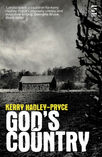Psychogeocriticism
- Kerry Hadley
- Jan 5, 2019
- 2 min read

It seems almost always night here. It's the time of the year. Good time of the year for walking and reading. I have re-read Ruby's Spoon, and Lindfield-Ott's article, 'Fear in Fearn' in which she examines Michel Faber's Under the Skin looking at the representation of place. Of course, psychogeographical writing isn't just writing about place. Debord himself was careful to differentiate psychogeographical effects from a simply material geography (Debord 1981a: 7) and Phil Baker argues 'a text is more fully psychogeographic if there is a sense that history affects ambience and the character of the place inheres and affects feelings and behaviour.' (Baker 2003: 325). But, as a writer, there is a very thin line between writing about place and evoking the psychogeography of somewhere. Lindfield-Ott says 'Geo-literary criticism explores not literature in a geographical space, but literature of space - the "geographical imagery"' Speaking about Faber's work, she says his stories 'encapsulate the essence of the communities, landscape and mentality of Easter Ross.' She's talking about geocriticism ('a method of literary analysis and literary theory that incorporates the study of geographic space.' according to wikipedia) And I realise that what I'm trying to do, as a reader and a writer, is 'psychogeocritism', actually, rather than 'literary psychogeography'. A thin line, for sure, and one that takes me off the beaten track, along the edgelands of texts as both a reader and a writer.
At last word count, God's Country sits at 33394. Not enough, because I've edited ferociously. The ending has twisted itself away from where I thought it was going, and I know there is plenty more editing still to do. It's not a simple process, and I'm not happy with all of it, yet. But the editing is doing something to it, making it more uncanny, I think. Maybe it's the time of year.









Comments